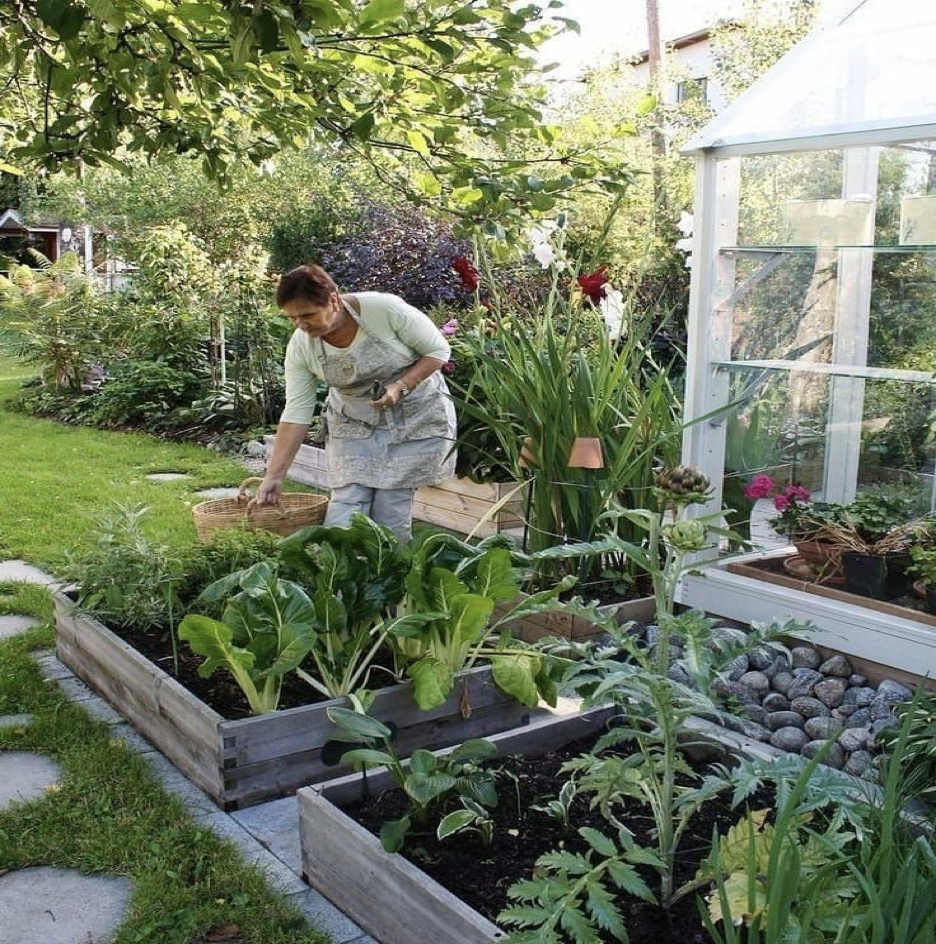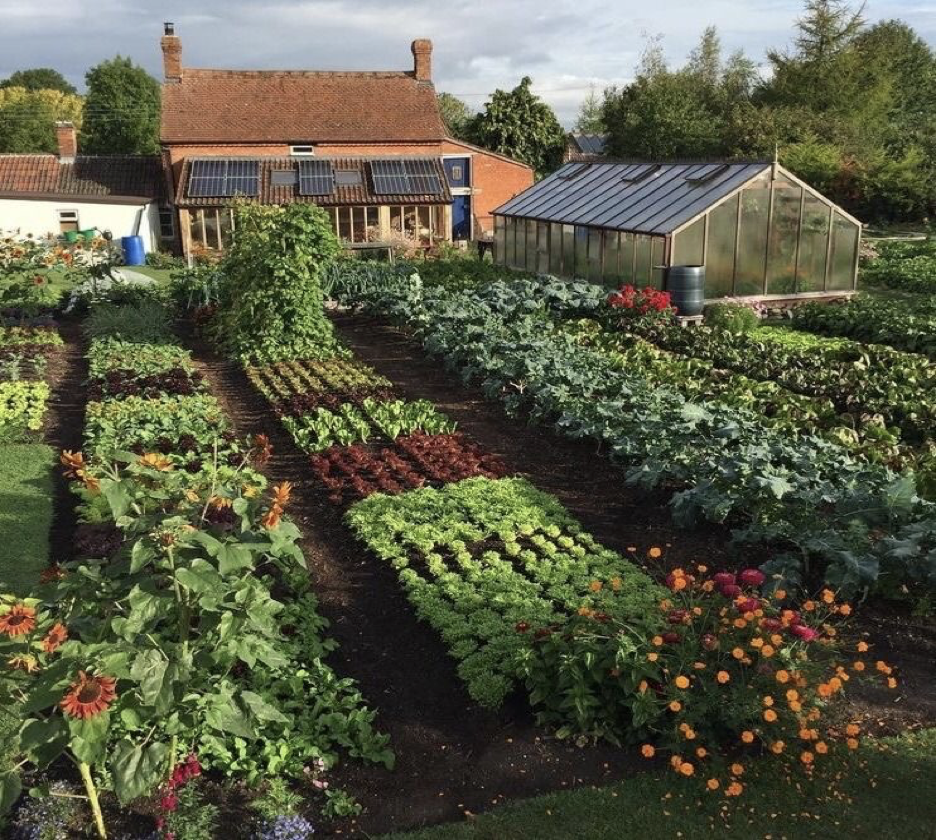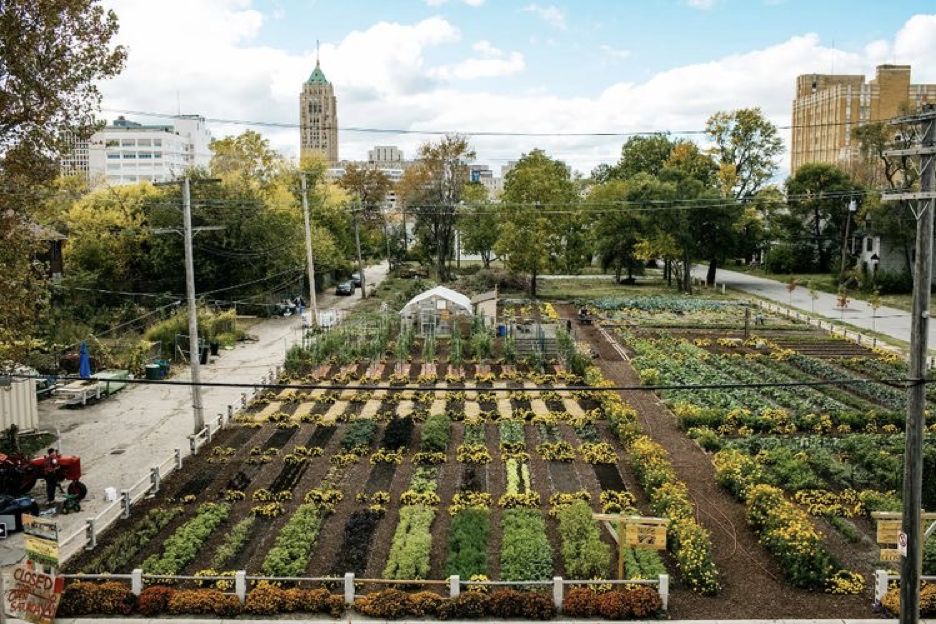Amidst the bustling concrete jungles that define modern cities, a captivating phenomenon is sprouting—urban farming. In response to the mounting complexities of global food security, this remarkable and sustainable agricultural endeavour emerges as a beacon of hope, offering a promising solution. At its core, urban farming embodies the practice of cultivating food within the very fabric of urban landscapes, unearthing a multitude of advantages. Not only does it bring farm-fresh produce within arm’s reach of city dwellers, but it also carries the potential to revolutionise our perspective on food production and distribution, paving the way towards a more resilient and locally oriented sustenance paradigm.
Rapid urbanisation is increasing food demand in cities, which is straining conventional farming systems. In response to this difficulty, urban farming has become more popular. The practice of urban farming is evolving, taking on new forms that creatively utilise the space that is currently available, including rooftops, vacant lots, communal gardens, and hydroponic systems. It encourages local food production, lessens the environmental impact of long-distance travel, and increases the resiliency of metropolitan areas.

One of the most significant benefits of urban farming is its ability to relieve food insecurity. So-called food deserts, where availability to fresh and reasonably priced produce is scarce, are present in many highly populated urban regions. This gap can be filled by urban gardening, giving needy populations access to a variety of nourishing foods. Community gardens and farmers’ markets also increase food security by fostering a feeling of neighbourhood and establishing social networks.
Urban farming best exemplifies inherent sustainability by creatively utilising the potential of vacant lots and unused spaces to reduce urban blight and foster a thriving neighbourhood revival. The paradigm further appeals to those who care about the environment because it includes organic and regenerative farming practices, which significantly reduce the need for harmful pesticides and fertilisers. Notably, urban farming exhibits creative inventiveness by utilising cutting-edge methods like aquaponics and vertical farming, maximising the use of available space, and wisely managing water supplies. This cutting-edge agriculture project essentially incorporates a holistic sustainability philosophy, supporting the ecology and promoting a sense of community cohesiveness.
Beyond simply supplying nutritious produce, urban farming functions as an educational platform. It fosters a deeper understanding of agricultural processes and the difficulties associated with food production while re-connecting city inhabitants with the food they consume. Urban farming educational initiatives urge people to adopt sustainable lifestyles and promote healthy diets. As a result of this empowerment, communities become more resilient and develop a sense of ownership and accountability for food systems.

Urban farming acts as a crucial catalyst for boosting regional economies by encouraging a thriving ecosystem of employment opportunities and business enterprises. Urban farmers, enterprising market merchants, and trailblazing companies leading the way in cutting-edge urban agriculture technologies weave a complex tapestry of opportunities. This vibrant industry generates a consistent flow of cash and supports the expansion of small businesses. Especially noteworthy is that the abundant harvests raised in urban farms find their way to farmers’ markets and neighbourhood eateries, establishing a close relationship between producers and discerning consumers. In addition to sustaining the economy, this symbiotic relationship also fosters a strong sense of communal togetherness, reaping the benefits of a successful urban farming paradigm.
While urban farming has numerous advantages, there are drawbacks as well. Some of the challenges faced by urban farmers include a lack of space, contaminated soil, and zoning laws. Aquaponics and hydroponics are two cutting-edge approaches that do away with the need for arable land. To get over zoning constraints and encourage the incorporation of urban farming into city planning, community involvement and lobbying initiatives are also crucial.
As cities continue to grow, urban farming will play a critical role in designing sustainable cities of the future. By incorporating agriculture into the urban landscape, we can develop greener, more self-sufficient, and resilient cities. To create policies that encourage and promote urban farming efforts, local governments, NGOs, and residents must work together. Then and only then will we be able to fully realise the wonders of this fascinating world of urban farming, where healthy produce grows amid the concrete jungle, nourishing body and spirit.

The mystical subject of urban farming unfolds as a riveting endeavor, perfectly integrating the pillars of sustainability, communal involvement, and the very spirit of our gastronomic future. This bold initiative skilfully addresses the pressing issues of food insecurity and ecological depletion while igniting an intrinsic sense of interconnectedness with our sustenance and fellow humans. It nurtures nourishment within the city’s embrace. As the urban agricultural tapestry unfolds, it beckons forth a colourful vista of a more fortified, prospering, and sustainable urban terrain, one that reverberates harmoniously across the annals of time and bestows a wealth of holistic wellness onto generations yet to come.
Sources
- https://www.thespruceeats.com/what-is-urban-farming-5188341
- https://smallbiztrends.com/2023/07/urban-farming.html
- https://www.thegrowcer.ca/blog/2021/11/29/7-important-benefits-of-urban-farming?format=amp
- https://www.studysmarter.co.uk/explanations/human-geography/agricultural-geography/urban-farming/
- https://www.vox.com/platform/amp/2016/5/15/11660304/urban-farming-benefits




